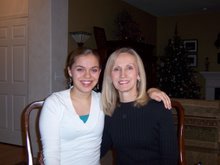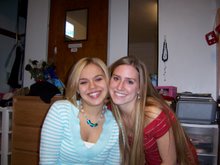
Before enrolling in this mass communications course my thoughts of a documentary were very limited. When hearing the word documentary I usually thought of something boring that you watched in class, usually with a lot of talking in monotone voices and dealing with ancient history. To me a documentary was not something fun to watch. Even when this class began and we were informed that we would have to produce our own documentary I was a little daunted by the project and kind of upset that we’d have to make such a boring video.
In today’s world where media is always changing, the documentary is evolving as well. Documentaries now range from 3 minute clips you can find on YouTube.com, television reality shows, and of course what I only used to think of a documentary as—films. The whole point of a documentary is to tell someone or something’s story. Anyone who makes a documentary has their own agenda, so each documentary varies in style and how the story is presented.
After discussing in class exactly what a documentary is and viewing various documentaries, I now have a completely different view of documentaries. Watching 30 days (a reality show), A Class Divided, and many other short clips of documentaries such as Campus Ladies have showed me the various fo
 rms and views that a documentary can take. Now that I understand the genre of documentaries, I am beginning to value and even enjoy them. I can now watch a documentary critically. I try to understand what the producers are trying to tell me and whose story they are telling. I’ve begun to notice some of the techniques that documentary producers use to engage their audience. Music is a big thing that can bring emotion and feeling into the documentary, which is a tool most producers use often and effectively. One thing that I still do not like about documentaries is when a person is being interviewed and they talk for a majority of the documentary with no pictures/video clips. Talking is fine and necessary, but I feel that a good documentary shows pictures of the subject to help tell the story while they are talking.
rms and views that a documentary can take. Now that I understand the genre of documentaries, I am beginning to value and even enjoy them. I can now watch a documentary critically. I try to understand what the producers are trying to tell me and whose story they are telling. I’ve begun to notice some of the techniques that documentary producers use to engage their audience. Music is a big thing that can bring emotion and feeling into the documentary, which is a tool most producers use often and effectively. One thing that I still do not like about documentaries is when a person is being interviewed and they talk for a majority of the documentary with no pictures/video clips. Talking is fine and necessary, but I feel that a good documentary shows pictures of the subject to help tell the story while they are talking.Webster's defines ‘documentary’ as: of, relating to, or employing documentation in literature or art; broadly : factual, objective .
I define a documentary as some type of ‘thing’ that can be viewed which informs you or shows you about something that you’ve never seen before. This ‘thing’ could be the actual subject talking, a picture slideshow with music, still pictures with a narrator, a television show or any combination of these. In producing our own documentary I feel that my group should strive to include a few important aspects. Our documentary should be unbiased—we should present the voice of our subject and not our own. If necessary, there may be a bit of narration or an introduction, but the subject’s voice should be heard more throughout the documentary than a narrator. Music should be included to share the emotion of our documentary and the subject. With all of these aspects, I hope that our documentary, when finished, will inform our viewers of something new or maybe change some of the previous pictures they had in their heads.


3 comments:
I really like that you mentioned that our documentaries should be unbiased. I understand and agree with that, but how do you think it is possible? What can we do to ensure that?
I'm curious what you might think about embracing the "subjective" when it comes to your participant and telling his story in your documentary. If you are completely transparent about motives, point of view, etc., can the subjective become as powerful as the objective?
Start comparing your definition with the other members of your team. You'll want to identify the common elements and craft a team definition. This will guide your efforts for your project.
In response to what b.weaver said:
I feel that the subjective and objective can both be powerful and can even work together within the same documentary. A producer is being objective when they are trying to come up with an idea for a documentary. Once they come up with an idea (ours for example: telling someone’s story) they then need to get that story. Getting the story I feel is where a producer can embrace the subjective. Having our person tell their own individual story in our documentary will be just as powerful. They will be telling us about their point of view and motives for the story that we are trying to tell.
Post a Comment